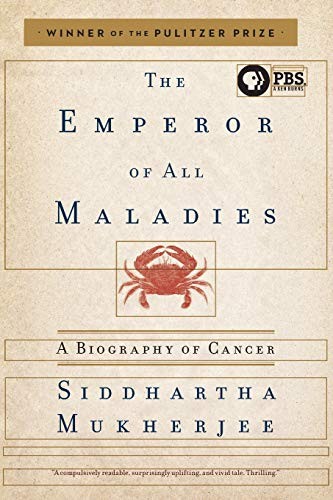Craig reviewed Emperor of All Maladies by Siddhartha Mukherjee
The Perfect Guide to your Altered Self
5 stars
This is the book that made me realize I wanted to practice medicine.
I was handed this book in my senior year of high school by the veterinarian I shadowed at the time after expressing interest into the pathology of cancer. He had told me that this book would change the way I see the body, and he was absolutely correct. Mukherjee covers the difficult concept of cancer with dignity and a vast respect for those who have suffered under its weight. It was the ways in which he described his interaction with his patients that made me realize clinical medicine was the future I desired.
Mukherjee has an excellent talent for breaking intricate topics in to digestible concepts for all to understand. You do not need a vast array of previous information to understand this book.
Years later, as I'm preparing to head off to medical …
This is the book that made me realize I wanted to practice medicine.
I was handed this book in my senior year of high school by the veterinarian I shadowed at the time after expressing interest into the pathology of cancer. He had told me that this book would change the way I see the body, and he was absolutely correct. Mukherjee covers the difficult concept of cancer with dignity and a vast respect for those who have suffered under its weight. It was the ways in which he described his interaction with his patients that made me realize clinical medicine was the future I desired.
Mukherjee has an excellent talent for breaking intricate topics in to digestible concepts for all to understand. You do not need a vast array of previous information to understand this book.
Years later, as I'm preparing to head off to medical school, I still smile when I see this book on my shelf. It not only helped me find a future, it helped me and my family navigate the loss of a loved one. If cancer intimidates you or peaks your curiosity, give it a read.


